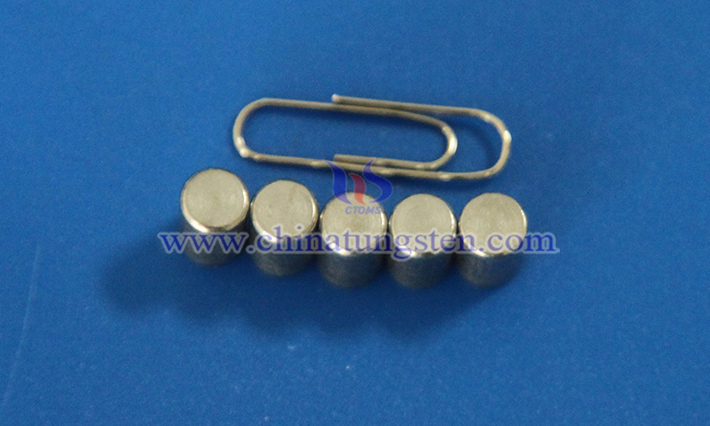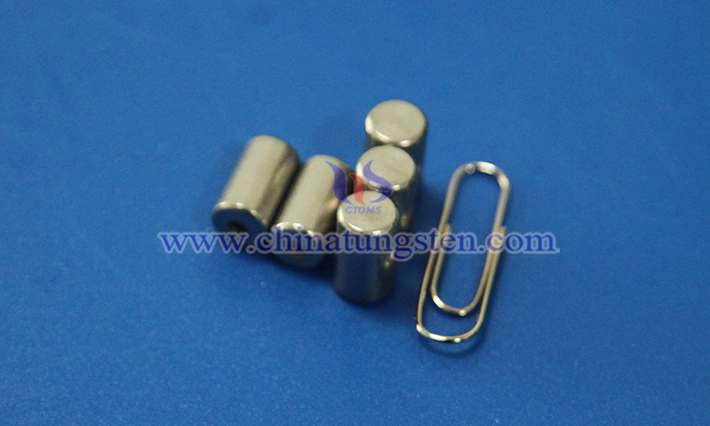Barium Tungsten Electrodes for Magnetrons
- Details
- Category: Tungsten Information
- Published on Monday, 28 April 2025 17:26
A magnetron is a vacuum electronic device that utilizes alternating electromagnetic fields to control electron motion, thereby generating high-power microwaves. One of its critical components is the cathode electron emission source. As a typical cathode material for magnetrons, barium tungsten electrodes play a pivotal role in microwave generation systems due to their unique physical properties.

I. Working Principle of Barium Tungsten Electrodes in Magnetrons
Barium tungsten electrodes employ a metallic tungsten matrix into which barium compounds (e.g., barium oxide) are embedded through an impregnation process, forming a composite structure. The combination of tungsten's high melting point (3422°C) and barium's low work function endows this material with both high-temperature stability and efficient electron emission capability. Under magnetron operation, barium atoms on the electrode surface ionize and release electrons under strong electric fields, generating a space charge flow. Its porous structure enables sustained release of active barium species, maintaining long-term stable electron emission performance. Meanwhile, the tungsten matrix effectively resists thermal stress and ion bombardment, ensuring device reliability.

II. Key Application Scenarios of Barium Tungsten Electrodes in Magnetrons
1. Radar Systems
In military and civilian radar applications, magnetrons serve as pulsed power sources, requiring cathodes with rapid startup capability, high pulse repetition frequencies, and long service life. The low-temperature ignition characteristics of barium tungsten electrodes reduce radar boot-up time, while their thermal shock resistance enables adaptation to complex electromagnetic environments, sustaining continuous detection capabilities.
2. Communication Equipment
Satellite communications and terrestrial microwave relay systems rely on magnetrons for stable continuous-wave output. Barium tungsten electrodes' low-noise electron emission characteristics minimize signal distortion, and their ion sputtering resistance ensures tens of thousands of hours of stable operation in vacuum environments, meeting the stringent reliability demands of communication systems.
3. Industrial Heating
Industrial microwave heating equipment requires magnetrons to withstand high-load cycling. Barium tungsten electrodes' contamination resistance (insensitivity to metal vapors) prevents performance degradation from material contamination, while their uniform electron emission distribution ensures heating efficiency and temperature consistency, making them suitable for applications such as food sterilization and material curing.
4. Medical Devices
In equipment like medical linear accelerators, magnetrons must provide highly precise pulse modulation. Barium tungsten electrodes' rapid response capability (nanosecond-level electron emission delay) supports accurate dose control, and their chemical stability prevents material degradation in sterilization environments, ensuring medical safety.
- Chinatungsten Online: www.tungsten.com.cn
- CTIA GROUP LTD: en.ctia.group
- Tungsten News & Price: www.ctia.com.cn
- Molybdenum News & Price: news.molybdenum.com.cn
- Tel.: 86 592 5129696; Email: sales@chinatungsten.com



 sales@chinatungsten.com
sales@chinatungsten.com